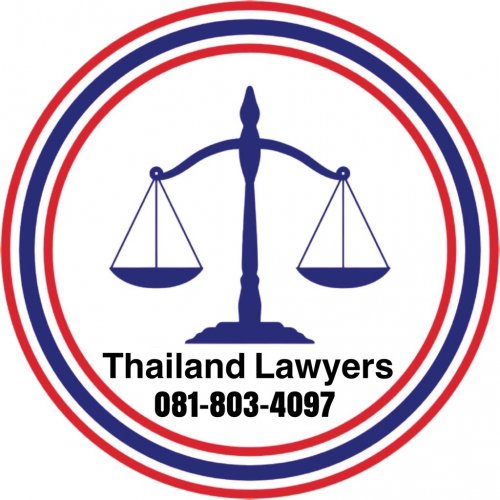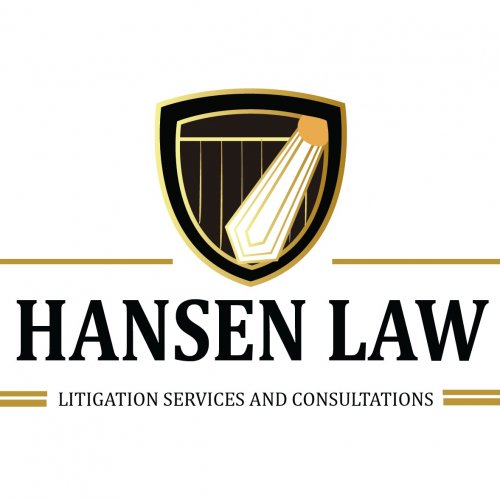Best White Collar Crime Lawyers in Pattaya
Share your needs with us, get contacted by law firms.
Free. Takes 2 min.
List of the best lawyers in Pattaya, Thailand
About White Collar Crime Law in Pattaya, Thailand
White collar crime in Pattaya, Thailand, refers to non-violent offenses typically committed for financial gain. These crimes often involve deceit, breach of trust, or concealment. Common examples include fraud, embezzlement, bribery, and money laundering. In Pattaya, a thriving hub for international business and tourism, the potential for white collar crime is significant, necessitating vigilant enforcement and specialized legal pathways to handle such offenses.
Why You May Need a Lawyer
Individuals and businesses may require legal assistance in scenarios where they are either accused of, or victims of, white collar crimes. Common situations include being subjected to regulatory investigations, accusations of financial fraud, complexities in international business laws, or seeking redress for financial losses due to deceptive practices. A lawyer can provide essential guidance to navigate the intricate legal landscape, ensuring compliance with local regulations and protecting individual or organizational rights.
Local Laws Overview
Thailand's legal framework for addressing white collar crime involves a combination of traditional criminal laws and specific regulations targeting fraud and corruption. The Criminal Code of Thailand addresses offenses such as fraud and embezzlement, while specialized legislation like the Anti-Money Laundering Act and the Computer Crime Act deal with more particular types of white collar crimes. In Pattaya, local enforcement agencies work in tandem with national bodies to prevent and prosecute these crimes, making legal expertise crucial for navigating potential legal challenges.
Frequently Asked Questions
What constitutes white collar crime in Pattaya?
White collar crime generally involves non-violent, financially motivated offenses such as fraud, embezzlement, and bribery.
How are white collar crimes prosecuted in Thailand?
They are prosecuted under various laws including the Criminal Code, Anti-Money Laundering Act, and Computer Crime Act, often involving both local and national authorities.
What penalties are imposed for white collar crimes?
Penalties can range from fines and asset seizures to imprisonment, depending on the severity and nature of the crime.
Can foreigners be prosecuted for white collar crimes in Pattaya?
Yes, foreigners can be prosecuted under Thai law for crimes committed on Thai soil, including white collar crimes.
Is there any specific agency to report white collar crimes in Pattaya?
Yes, the Economic Crime Suppression Division (ECD) is a key agency for reporting white collar crimes in Thailand.
How can a lawyer help in a white collar crime case?
A lawyer can provide legal defense, negotiate settlements, ensure compliance with legal and regulatory standards, and represent clients in court.
What should I do if I am accused of a white collar crime?
You should seek legal advice immediately and refrain from making any statements to the authorities without your lawyer present.
Are there any defenses against white collar crime charges?
Yes, defenses may include lack of intent, insufficient evidence, or violations of rights during investigations.
How long does a white collar crime investigation typically take?
The duration varies depending on the complexity of the case, ranging from several months to several years.
Can victims of white collar crime recover their losses?
Victims can seek restitution through legal proceedings, but recovery often depends on the specifics of the case, including the availability of assets.
Additional Resources
Individuals seeking additional information or assistance can contact the Economic Crime Suppression Division of the Royal Thai Police or consult with local law firms specializing in financial and business law. The Thai Institute of Directors and the Anti-Money Laundering Office can also offer guidance and resources related to compliance and prevention.
Next Steps
If you need legal assistance concerning white collar crime in Pattaya, it is crucial to consult a lawyer with expertise in Thai business and criminal law. Begin by gathering all pertinent documentation and details of your case, then reach out to a reputable local attorney. Consider seeking initial consultations to understand your options and the legal process ahead. Protecting your rights and building a robust defense or claim strategy is imperative in handling white collar crime cases effectively.
Lawzana helps you find the best lawyers and law firms in Pattaya through a curated and pre-screened list of qualified legal professionals. Our platform offers rankings and detailed profiles of attorneys and law firms, allowing you to compare based on practice areas, including White Collar Crime, experience, and client feedback.
Each profile includes a description of the firm's areas of practice, client reviews, team members and partners, year of establishment, spoken languages, office locations, contact information, social media presence, and any published articles or resources. Most firms on our platform speak English and are experienced in both local and international legal matters.
Get a quote from top-rated law firms in Pattaya, Thailand — quickly, securely, and without unnecessary hassle.
Disclaimer:
The information provided on this page is for general informational purposes only and does not constitute legal advice. While we strive to ensure the accuracy and relevance of the content, legal information may change over time, and interpretations of the law can vary. You should always consult with a qualified legal professional for advice specific to your situation.
We disclaim all liability for actions taken or not taken based on the content of this page. If you believe any information is incorrect or outdated, please contact us, and we will review and update it where appropriate.










